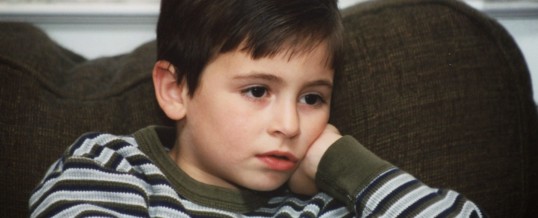
Your child has a history project due in two weeks, but he hasn’t even started. You’ve seen this behavior before — procrastination.
As is true of all childhood troubles, procrastination can have many causes. But this time, your son gives you an important clue about what’s going on: “I can’t do that assignment. It’s too hard!”
Often, procrastination is due to anxiety. Somehow that project feels way too big. And starting it, even thinking about it, leads to tremendous anxiety. So, he shoves it aside and tends to less daunting tasks – or maybe even no schoolwork at all, because it will remind him of the history project.
How can you be a helpful parent and assist him? Teach him how to break the BIG history assignment down into bearable bits.
“Come on, Nathan. I’m going to help you. We’re going to make this job manageable. Let’s start by making a list of what needs to be done and then putting them in order. First, do this, then this, then this.”
Once you have the list, suggest he do a little each night. On nights when he doesn’t have much schoolwork offer: “Let’s see if you can do a couple items on your list tonight.” And if he starts getting frustrated? “Nathan, I can see you’re getting frustrated. When you start feeling really frustrated, you know it’s time to take a break. So stop what you’re doing and get yourself a glass of water. Stretch your legs for awhile. Then you’ll feel better.”
By taking this approach, you’re teaching your child valuable organizational lessons. Remember, your role is supportive. So don’t take over the job, as that will play right into your child’s “can’t do” thinking.
And be sure to stand back and admire the finished product. “Good job, Nathan! I’m so proud of you and I hope you’re proud of yourself.”
More Parenting Tips available at www.westpsychotherapy.com.
FEB
2021


About the Author:
Victoria Todd, LISW-S, Child & Adolescent Psychoanalyst, is a summa cum laude graduate of Case Western Reserve University with a B.A. in Sociology and Psychology and a master’s degree in Social Administration. She developed the “My Mad Feelings” curriculum to prevent bullying by working with children as young as 4 to understand their emotions and appropriately express themselves. A qualified child psychoanalyst, she completed her training at the Hanna Perkins Center for Research in Child Development. A member of the American Psychoanalytic Association, the Association for Child Psychoanalysis and the Cleveland Psychoanalytic Center, she teaches classes and workshops at Case Western Reserve University. She served on the Treatment Subcommittee of the Ohio Child Sexual Abuse Grant and was a member of the Guardian ad Litem Advisory Board and the Children at Risk Coalition.